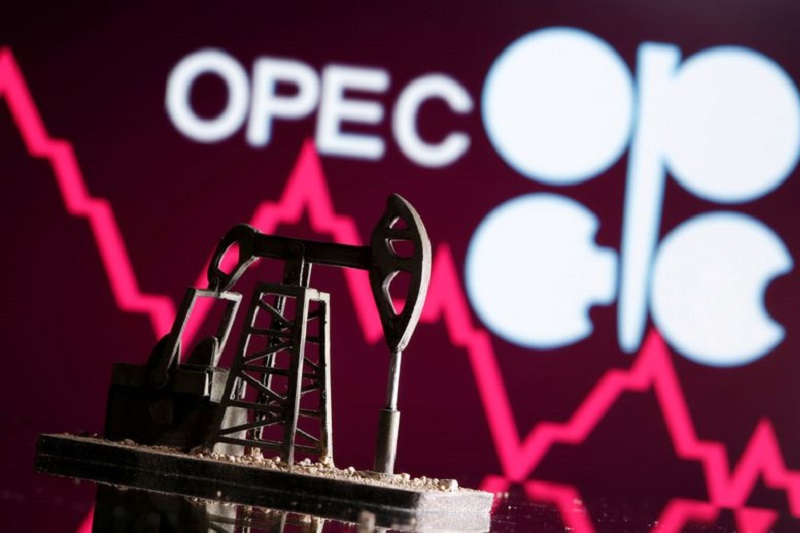© Reuters
Investing.com– Oil prices fell slightly in Asian trade on Friday, extending losses from the prior session as the OPEC+ cut supply by a smaller-than-expected margin, while weak data from China added to concerns over worsening demand.
Crude prices wiped out most of their gains made earlier this week, and were now set to end the week a smidge higher. They were also nursing two straight months of losses.
The Organization of Petroleum Exporting Countries and allies (OPEC+) said on Thursday it will cut production by an additional 2.2 million barrels per day (bpd) in the first quarter of 2024.
But the new production cuts were voluntary, and came amid some disagreements among OPEC+ members over reductions in output. They also disappointed traders hoping for deeper supply cuts by the cartel, given the recent decline in oil prices.
expiring February fell 0.2% to $80.65 a barrel, while fell 0.2% to $75.91 a barrel by 20:55 ET (01:55 GMT). Both contracts lost over 6% each in November, after steep declines on Thursday.
Strength in the also pressured crude markets, after the greenback rebounded from 3-½ month lows in anticipation of an address by Federal Reserve Chair Jerome Powell later on Friday.
OPEC+ cuts underwhelm, future reductions in doubt
Of the new 2.2 million bpd cuts announced on Thursday, 1 million bpd is a rollover of Saudi Arabia’s ongoing supply cuts. Russia also rolled over its ongoing curbs, but deepened them slightly to 500,000 bpd from 300,000 bpd.
That left the total new production curbs at less than 1 million bpd, which underwhelmed traders hoping for bigger curbs. While the new cuts are still set to negate a crude oil surplus in the first quarter of 2024, supplies will be less tight than initially anticipated.
The nature of the new cuts was also a point of contention for markets, given that they were voluntary. This raised concerns over discord among OPEC+ members, which could limit the cartel’s scope in cutting production further. African states, particularly Angola, also said they will not follow their OPEC+ peers in reducing supply.
“These voluntary cuts suggest that it is becoming difficult for members to agree on OPEC+ cuts. Therefore, if further action is needed in future, it will become increasingly difficult for the group to respond,” analysts at ING wrote in a note.
But ING analysts still forecast some upside for crude prices from the supply cuts, and that Brent crude may rise beyond the bank’s $82 a barrel target for the first quarter of 2024.
Weak China PMIs fuel demand concerns
Weak purchasing managers index (PMI) data from China added to pressure on oil markets, as in the world’s largest oil importer showed little signs of improvement in November.
While a released on Friday showed some improvement in manufacturing activity, China’s biggest economic engines still faced an uphill battle to reach pre-COVID levels.
This fueled concerns that worsening economic conditions will dent global crude demand, especially as readings earlier this week also showed sustained weakness in the euro zone and Japan.
An unexpected weekly build in U.S. – particularly in and stockpiles, also added to fears of slowing demand in the world’s largest fuel consumer.
Read the full article here

